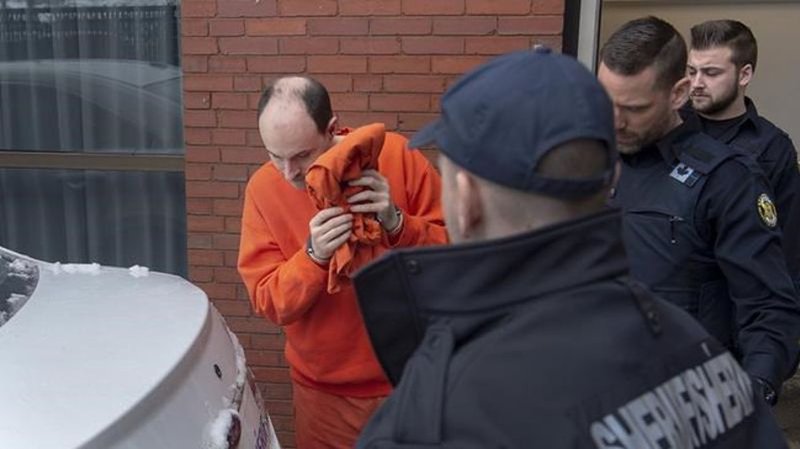
Defence sought mistrial one day after start of Fredericton mass murder proceedings
FREDERICTON — One day after the trial for the 2018 mass shooting in Fredericton began, the defence sought a mistrial, which could have derailed the legal proceedings against admitted killer Matthew Raymond.
Now that the evidence is complete and jurors are sequestered, trial details kept from them can be reported.
On Sept. 16, defence lawyer Nathan Gorham applied for the jury to be removed and for the trial to proceed before a judge alone. Gorham said prosecutors had made improper comments in front of jurors in their opening statements.
“The prosecution’s conduct violated the charter by introducing extraneous, inadmissible matters that tend to undermine trial fairness,” he wrote in his mistrial application.
